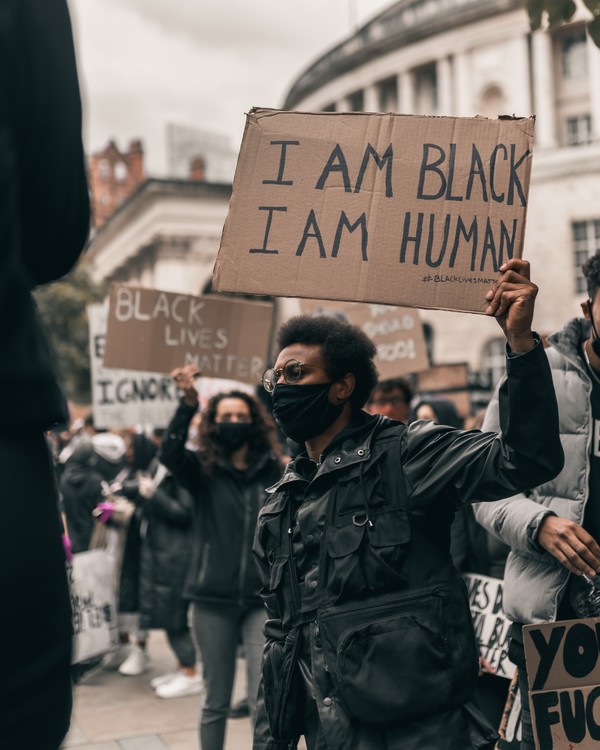To recognize our ignorant racism

ON JUNE 6th, 300 people gathered outside the U.S. Embassy in support Black Lives Matter. This sparked criticism from citizens who considered it an unnecessary risk amidst a global pandemic, as the “problem was in another country.” The reactions to the protest brought to light the unaddressed systemic social discrimination against minority races that permeates Korean society. In an era when the world is lobbying for change, it is past time for Koreans to reflect upon the racism that colors their interaction with black people.
The stale defense of ignorance
One of the most well-documented racist actions towards black people in Korea is blackface. Just this August, Uijeongbu High School’s costumed graduation ceremony featured students parodying the “dancing pallbearers” of Ghana, a popular meme*. Such incidents starkly divide the online community between those criticizing the blackface and those calling it a form of expression. The accused claimed that they were unaware of such cultural insensitivities, but the few apologies rang hollow. Instead, they have maintained that since the blackface getups held no ill intent against black people, they should not be considered racist.
Such plea for ignorance comes from a lack of interaction the general Korean public has with physical black people. Since the 1950s, Koreans have mostly been exposed to black people through movies and dramas, which often portray black people as poor criminals or disposable, unsuccessful characters. As even U.S. media has only recently begun to make substantial improvements to its portrayal of racial minorities, it is perhaps expected for Koreans to harbor straggling misconceptions. However, with the recent strides in social movements, it’s unacceptable that our society has made no moves to make our own changes.
It is now 2020, and the internet has given us access to the voices of black people while spreading Korea’s media around the world. The fact that people defended blackface, even as multiple black people in Korea and abroad criticized Uijeongbu High’s students’ actions, is both culturally insensitive and offensive. Perpetrators’ ignorance of how black people are offended by blackface is fast becoming an invalid excuse.
A common thought—that being removed from racial history or having few minorities in Korea exonerates us from racism—also perpetuates our racism. In other words, people often justify racist actions by saying that being racist is “not our culture.” Thus, even when black people express their discontent, we consider our stereotyped perceptions above their reproach. With blackface, for example, Koreans consider its historical use to demean blacks as part of Western culture; thus, when Koreans do it, blackface supposedly has no ill intent or effects—even if the characters they are trying to reproduce through blackface are often demeaning caricatures of black people, just like Western uses of blackface. Others even use this logic to claim that racial discrimination is a “natural human instinct,” considering the very perception of racism as a Western construct.
“They do it to us too.”
Another common defense for Koreans’ racism is the argument that we ourselves are victims of racism. An example is Sam Okyere, a Ghanaian celebrity in Korea who criticized the Uijeongbu High students of culturally insensitive blackface. Netizens shouted down his claim, questioning his very right to criticize the students while he himself “slit his eyes on TV to degrade Asians.” Okyere apologized and deleted his post, clarifying that “the English portions [do] not criticize the Korean education system,” and that the facial expression he had made was in the context of a show’s ugly face making contest**.
This argument only abets a game of chicken. Koreans’ racist actions, even if considered fair retribution, will engender racism to Koreans in return. Unless both sides are willing to accept misunderstandings, learn from them and amend relationships, the vicious cycle of racism will continue. Sam Okyere, who was in the end forced to shut down his account, is one of this cycle’s victims.
* * *
The most effective way to reduce such racism would be to pass the Anti-Discrimination Act that would delineate would be considered racism and make people more conscious of their actions and what they consume. Yet, with the current liberal government turning a blind eye to activists who have been trying to pass this law since 2006, this regulatory influence is a long way off. Until then, we must be ready to admit that some of our actions are wrong—and make a conscious effort to acknowledge what offends others and why.
*South China Morning Post
**The Diplomat

